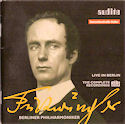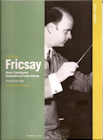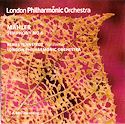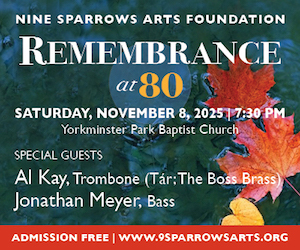 More than half a century has passed since the death of Wilhelm Furtwangler who was, as the saying goes, a legend in his own lifetime. His reputation around the world up to the early post WW2 years rested on word-of-mouth and the still incomparable HMV recordings with The Berlin Philharmonic of the Beethoven Fifth (1937), Music from Parsifal and Tristan (1938), and the Tchaikovsky Sixth (1939). Following the war his recordings, mainly with the Berlin and Vienna Philharmonics and the Philharmonia Orchestra, elicited critical acclaim and live on in CD catalogues. The recordings that exist of his concert performances are more representative of the energy and uniqueness of his interpretations than those from the studio. From 1947 until 1954 many of his concerts with the Berlin Philharmonic were heard on the RIAS, originating from the Titania-Palast in Berlin. AUDITE has acquired the original master tapes from Deutschlandradio and after expert remastering has issued 31 of these priceless (in the artistic sense) performances on a 12 CD set (Audite 21.403) together with a 13th disc of a 1951 colloquium, in German, with Furtwangler answering questions posed by an informed audience who all seem to be having a good time. As might be expected, there are some duplications of repertoire: from Beethoven two Eroicas, two Fifths and two Pastorales, along with two Brahms Thirds. The Bruckner Eighth from 15 March 1949 might seem to be a mislabelling of the 14 March 1949 performance on Testament (SBT1143). They are, in fact, different performances from different venues. The Testament is from The Gemeindehaus, Dahlem. They also offer quite a different sound picture. The Testament sounds less weighty and more detailed, the Audite is more opulent and ambient, a quality that characterises the sound on each of these 12 new discs. As expected, these are unashamedly Romantic performances of Mendelssohn, Beethoven including the violin concerto with Menuhin, Bach, Schubert, the Fortner violin concerto (Gerhard Taschner), Wagner, Hindemith, Gluck, Handel and Weber. Anachronistic? As there are no absolutes in interpretation, who's to say? These are organic performances that delve deeper into the various scores than is fashionable today. There is no shortage of Furtwangler CDs but these are unique in that, taken from the master tapes, we hear exactly what was fresh then. I found every performance, excepting Schumann's Manfred Overture, to be quite intoxicating. In the film "Taking Sides", expanded from the stage play about Furtwangler's de-Nazification, author Ronald Harwood has Furtwangler commenting on a live performance of a Schubert string quintet, "The tempos were a little too correct for my taste." "What does he mean ‘too correct?'" asks someone. "I don't know," was the reply. We know.
More than half a century has passed since the death of Wilhelm Furtwangler who was, as the saying goes, a legend in his own lifetime. His reputation around the world up to the early post WW2 years rested on word-of-mouth and the still incomparable HMV recordings with The Berlin Philharmonic of the Beethoven Fifth (1937), Music from Parsifal and Tristan (1938), and the Tchaikovsky Sixth (1939). Following the war his recordings, mainly with the Berlin and Vienna Philharmonics and the Philharmonia Orchestra, elicited critical acclaim and live on in CD catalogues. The recordings that exist of his concert performances are more representative of the energy and uniqueness of his interpretations than those from the studio. From 1947 until 1954 many of his concerts with the Berlin Philharmonic were heard on the RIAS, originating from the Titania-Palast in Berlin. AUDITE has acquired the original master tapes from Deutschlandradio and after expert remastering has issued 31 of these priceless (in the artistic sense) performances on a 12 CD set (Audite 21.403) together with a 13th disc of a 1951 colloquium, in German, with Furtwangler answering questions posed by an informed audience who all seem to be having a good time. As might be expected, there are some duplications of repertoire: from Beethoven two Eroicas, two Fifths and two Pastorales, along with two Brahms Thirds. The Bruckner Eighth from 15 March 1949 might seem to be a mislabelling of the 14 March 1949 performance on Testament (SBT1143). They are, in fact, different performances from different venues. The Testament is from The Gemeindehaus, Dahlem. They also offer quite a different sound picture. The Testament sounds less weighty and more detailed, the Audite is more opulent and ambient, a quality that characterises the sound on each of these 12 new discs. As expected, these are unashamedly Romantic performances of Mendelssohn, Beethoven including the violin concerto with Menuhin, Bach, Schubert, the Fortner violin concerto (Gerhard Taschner), Wagner, Hindemith, Gluck, Handel and Weber. Anachronistic? As there are no absolutes in interpretation, who's to say? These are organic performances that delve deeper into the various scores than is fashionable today. There is no shortage of Furtwangler CDs but these are unique in that, taken from the master tapes, we hear exactly what was fresh then. I found every performance, excepting Schumann's Manfred Overture, to be quite intoxicating. In the film "Taking Sides", expanded from the stage play about Furtwangler's de-Nazification, author Ronald Harwood has Furtwangler commenting on a live performance of a Schubert string quintet, "The tempos were a little too correct for my taste." "What does he mean ‘too correct?'" asks someone. "I don't know," was the reply. We know.
 Ferenc Fricsay (1914-1963) was well on his way to becoming a major conductor of international stature. Born in Budapest, he studied at the Franz Liszt Academy and was welcomed by the finest German orchestras with whom he made acclaimed recordings for Deutsche Grammophon who clearly saw his great natural ability and realised his potential. What we see in a new DVD from Medici Arts, Ferenc Fricsay - Music Transfigured (EDV 1333, 1 DVD) is a video biography with revealing rehearsal sequences which confirm his genius and music's tragic loss upon his early death. There are lots of observations, comments and reminiscences from his colleagues, including Dietrich Fischer-Dieskau. Performances of the Overture to La Scala di Seta and the Leonora III follow on this entertaining and informative DVD.
Ferenc Fricsay (1914-1963) was well on his way to becoming a major conductor of international stature. Born in Budapest, he studied at the Franz Liszt Academy and was welcomed by the finest German orchestras with whom he made acclaimed recordings for Deutsche Grammophon who clearly saw his great natural ability and realised his potential. What we see in a new DVD from Medici Arts, Ferenc Fricsay - Music Transfigured (EDV 1333, 1 DVD) is a video biography with revealing rehearsal sequences which confirm his genius and music's tragic loss upon his early death. There are lots of observations, comments and reminiscences from his colleagues, including Dietrich Fischer-Dieskau. Performances of the Overture to La Scala di Seta and the Leonora III follow on this entertaining and informative DVD.
 Klaus Tennstedt (1926-1998) was a conductor who emerged from East Germany in 1971 and soon achieved international acclaim. His North American debut was in Toronto in 1974 with the TSO conducting the Beethoven Violin Concerto with Itzhak Perlman. I was in Massey Hall that night and that concert remains as one of my most electrifying evenings ever. He was associated with the London Philharmonic Orchestra from 1980, first as Guest Conductor then Principle Conductor until 1987 when he stepped down due to ill health. The LPO has been issuing some live performances recorded by the BBC, the most recent being a blazing Mahler Sixth in stunning sound live from the Royal Albert Hall on August 22nd 1983 (LPO 038, 2 CDs). There are two other Sixths with the LPO, 1980 and 1991 but this one equals those and for its passion excels. It certainly would be an "if you have only one version" choice.
Klaus Tennstedt (1926-1998) was a conductor who emerged from East Germany in 1971 and soon achieved international acclaim. His North American debut was in Toronto in 1974 with the TSO conducting the Beethoven Violin Concerto with Itzhak Perlman. I was in Massey Hall that night and that concert remains as one of my most electrifying evenings ever. He was associated with the London Philharmonic Orchestra from 1980, first as Guest Conductor then Principle Conductor until 1987 when he stepped down due to ill health. The LPO has been issuing some live performances recorded by the BBC, the most recent being a blazing Mahler Sixth in stunning sound live from the Royal Albert Hall on August 22nd 1983 (LPO 038, 2 CDs). There are two other Sixths with the LPO, 1980 and 1991 but this one equals those and for its passion excels. It certainly would be an "if you have only one version" choice.
 MENUHIN - A Family Portrait (TP-DVD120) is Tony Palmer's outstanding film about Yehudi Menuhin, his career, and most significantly his family and their dominating matriarch, Yehudi's mother. Originally issued in 1990, Palmer speaks at length with Menuhin's sister Hephzibah, also his son Gerard and others whose revelations of the Machiavellian, heartless manipulation of Menuhin's whole family by his mother help fill in the private life of one of, if not the, most prominent violinists of the 20th century. This is an astonishing document.
MENUHIN - A Family Portrait (TP-DVD120) is Tony Palmer's outstanding film about Yehudi Menuhin, his career, and most significantly his family and their dominating matriarch, Yehudi's mother. Originally issued in 1990, Palmer speaks at length with Menuhin's sister Hephzibah, also his son Gerard and others whose revelations of the Machiavellian, heartless manipulation of Menuhin's whole family by his mother help fill in the private life of one of, if not the, most prominent violinists of the 20th century. This is an astonishing document.



